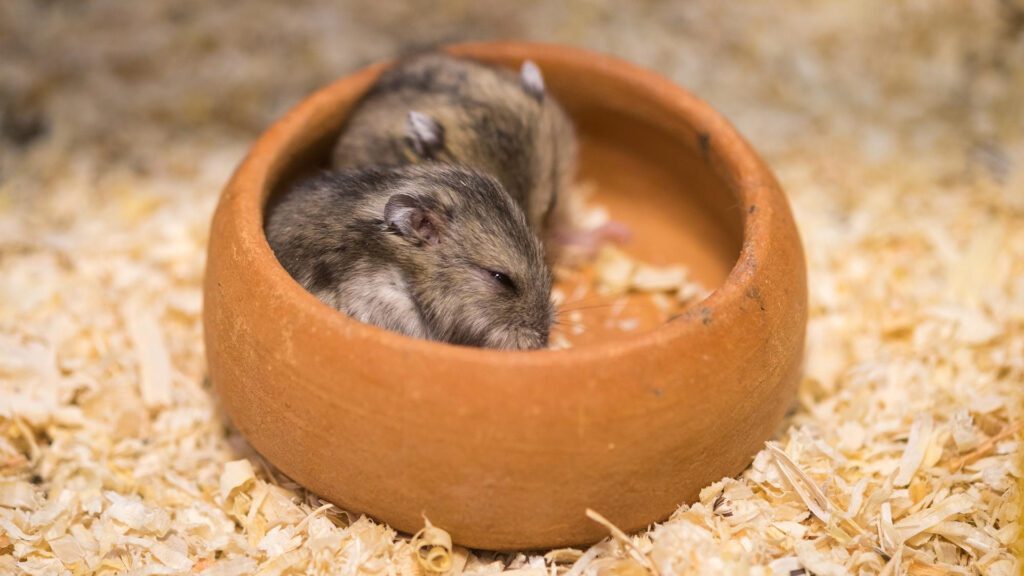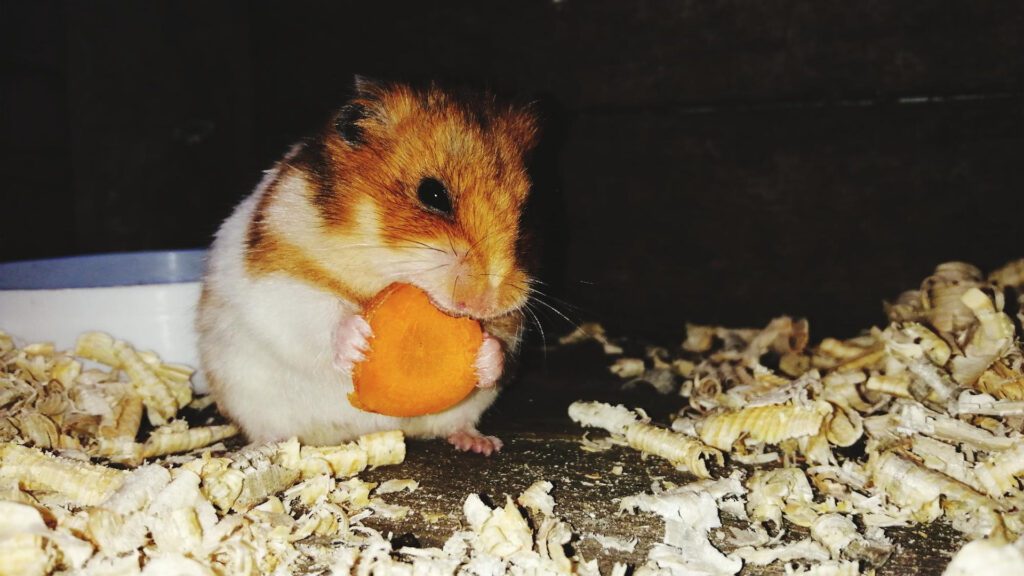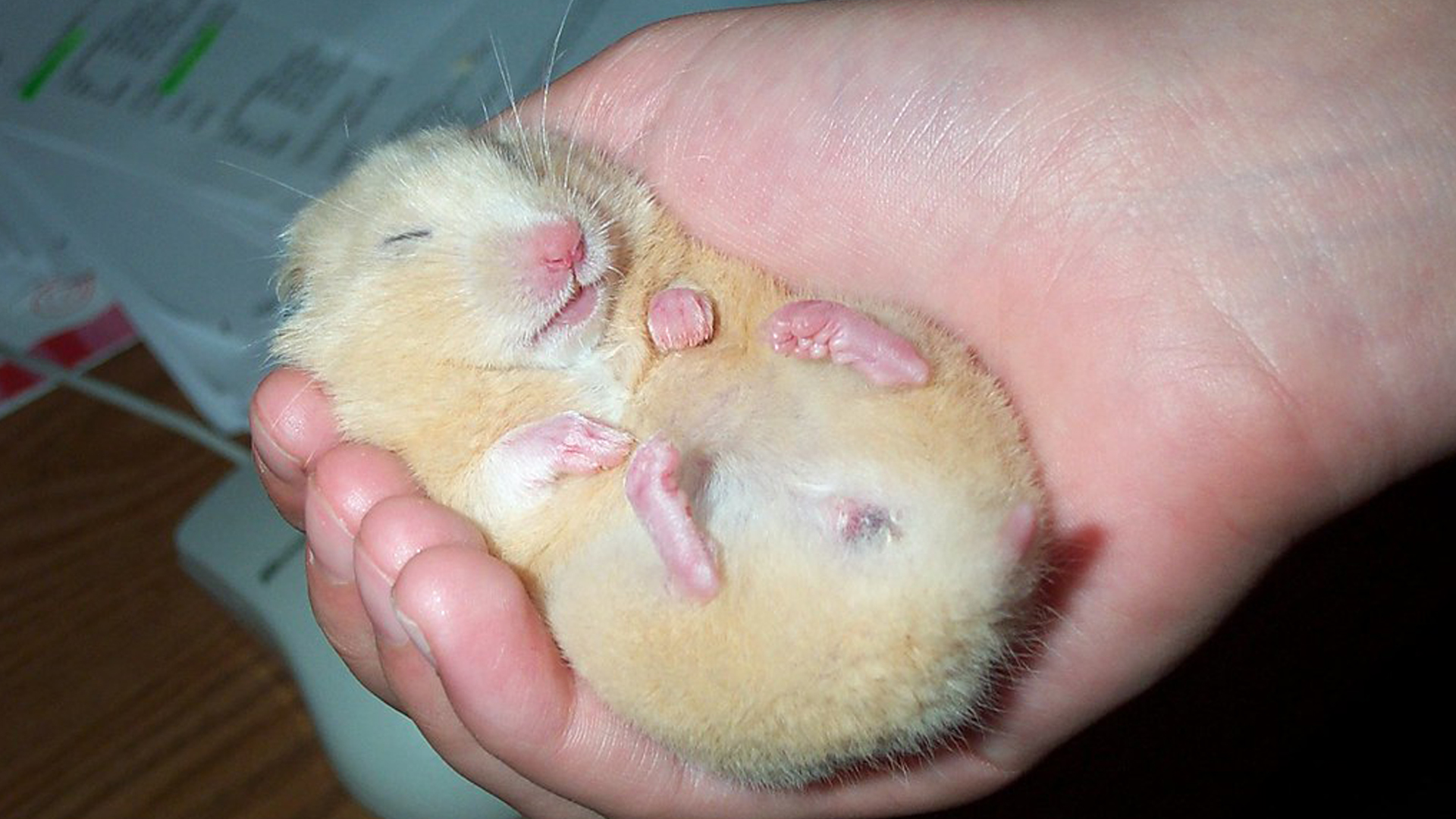You may have heard your pet hamsters scurrying about in their cage at night. Does this mean hamsters are nocturnal?
Continue reading and learn about different hamster species and their sleeping schedule!
Are Hamsters Nocturnal Animals?
Yes, hamsters are nocturnal. This small pet stays active at night and sleeps during the day. However, male and female hamsters do have different sleeping patterns.
Most female hamsters are diurnal, which means they are active in the middle of the day. Researchers suggest this shift is a natural instinct to avoid predators and conserve energy.
While hamsters are often perceived as nocturnal, many argue that they are crepuscular in nature. This means that they are active at dusk and dawn.
Fun Fact: Keeping pet hamsters is banned in Hawaii due to fears from government officials that they could eat native plants and destroy habitats.
Why Do Hamsters Sleep During The Day?
Hamsters rest in their burrows or nests, which provides safety and comfort during the day. This behavior also helps them stay cool in hot temperatures, as they are sensitive to heat.
In the wild, hamsters would forage for food and explore at night (a.m) when it’s cooler and darker. This instinctual behavior continues in captivity.
Should I Wake My Sleeping Hamster?

Waking your hamster can be tempting, especially if you want to play with it. However, it’s generally best to let your hamster sleep. Waking them up frequently can cause stress and disrupt their natural sleep cycle. A disturbed and irritated hamster might show signs of biting.
If you need to handle your hamster, wait until they wake up independently. This will make them more relaxed and willing to interact.
Are All Hamster Species Nocturnal?
Hamsters are popular pets known for their playful nature and unique habits. One common question is whether all hamster species are nocturnal. Let’s find out.
Syrian Hamster
Syrian hamsters are primarily nocturnal. They prefer to explore and play in darkness when they feel safest.
Dwarf Hamsters
Dwarf hamster species like Campbell’s and Roborovski are mostly nocturnal. However, due to the environmental conditions, they may show some diurnal activity.
Chinese Hamsters
Chinese hamsters are unique. While they exhibit nocturnal tendencies, they can adapt to being active during the day if their owners interact with them.
Things To Consider Before Buying A Hamster
Have you officially made up your mind to adopt a pet hamster? While these mammals look cute and cuddly, they can be tough to deal with. Here’s why:
Other Pets
Before buying a hamster, consider how other pets in your house might react. Hamsters are particularly small and light, but their presence could trigger curiosity or aggression from larger animals. Observe the time of day when your pets are most active; this can affect interactions.
Ensure a consistent environment that mimics what would occur in nature and describes their needs, as hamsters typically require an average amount of activity throughout the night.
Children
Hamsters are unlikely to be the right pet for you if you have a household with children. Hamsters require specific care and understanding, which children typically don’t respect.
Hamsters are most active during certain periods of time at night when children are asleep. This causes children to disturb the hamster’s natural sleep rhythm during daylight hours.
To engage your children with hamsters, teach them to respect the hamster’s need for rest, as they spend significant periods of time asleep in their box, and be patient with them.
Night Owl or Early Bird?

Consider your lifestyle! Are you a night owl or an early bird? Hamsters are naturally nocturnal, so their activity peaks at night. If you desire consistency in interaction, choose a time that aligns with their habits. This can slightly affect your bonding experience.
Space
Before acquiring a hamster, it’s essential to consider the big cage, wheel, and bedding needed to create a suitable habitat. Hamsters are solitary creatures, requiring their own space to feel secure.
In contrast to more social pets, hamsters thrive with little interaction from humans or other animals. Their native habitats, like those in the desert regions of the southern areas, indicate their preference for solitude.
Also, hamsters are clean animals. They prefer their living space to be thoroughly maintained regularly to escape stress and anxiety.
Disease
These small animals pose a risk to healthy adults as they carry gastrointestinal and intestinal bacteria. Exposure to this bacteria can cause severe illness and health conditions if an individual has a weakened immune system.
Pregnant females or older adults should avoid interacting with hamsters regularly. This could worsen the health of unborn children and older adults.


